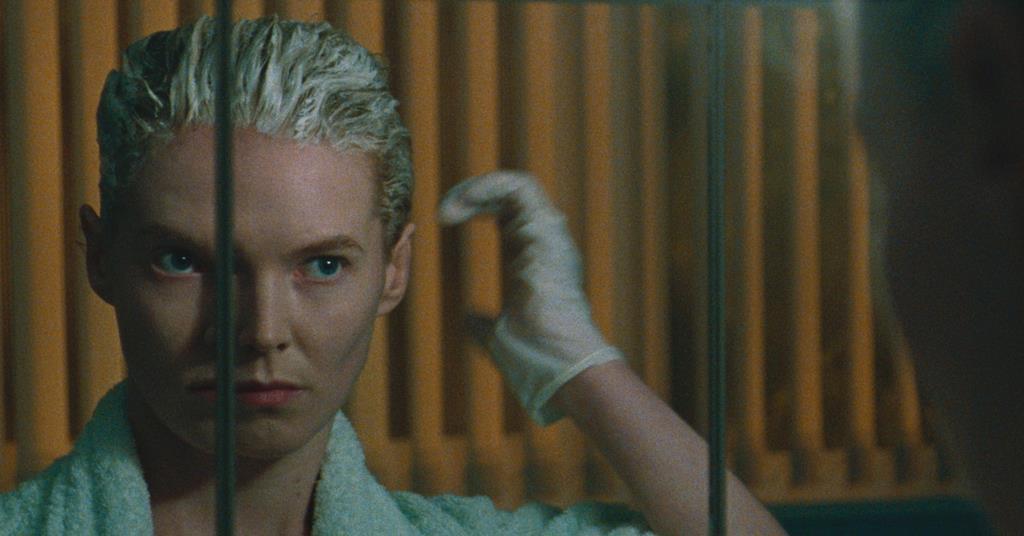Blue Jean
by Hope Madden
The past and present look a little too similar in writer/director Georgia Oakley’s quietly profound drama, Blue Jean.
This is true, regardless of the spot-on period detail. Jean (Rosey McEwen) teaches high school PE in Thatcher-era London. Protests over the conservative party’s push to enshrine anti-LGBTQ+ laws echo from radio stations and TV sets in the faculty lounge, greeted with reactions from colleagues that confirm Jean’s instinct to stay closeted.
McEwen’s riveting performance is almost entirely internal. A gesture, a breath, a blink holds meaning. And tears – forget it. Jean is too tightly wound, trying so hard to disappear, to draw no attention to herself so she can slip through her days unnoticed. But why did she get into teaching in the first place?
Without a hint of a heavy hand, Oakley brings us around to that question. She didn’t do it because she didn’t want to leave an impression. No one chooses to spend their days surrounded by adolescents, of all things, if they don’t want to offer some kind of value, provide some kind of guidance toward adulthood.
Jean doesn’t want to be a hero, but there comes a moment when she has to reckon with whether or not she’s willing to be a villain.
McEwen’s isn’t the only impressive performance. A vibrant and endlessly lovable Kerry Hayes makes love interest Viv a buoyant but levelheaded surprise. Young Lucy Halliday is raw vulnerability as Lois, balanced beautifully by the layered, roiling emotion of Lydia Page’s Siobhan.
It’s stunning that this is Oakley’s feature debut. The patient pacing pays off with a fully earned climax and not one note rings false. Every moment aches of heartbreak, but that only makes the pure joy of the final act that much more beautiful. Like the best queer cinema, Blue Jean makes the political personal. But even in the most oppressive climate, it is freedom.

